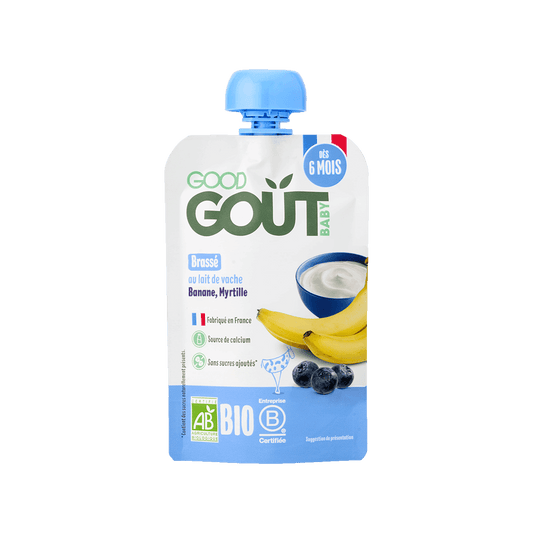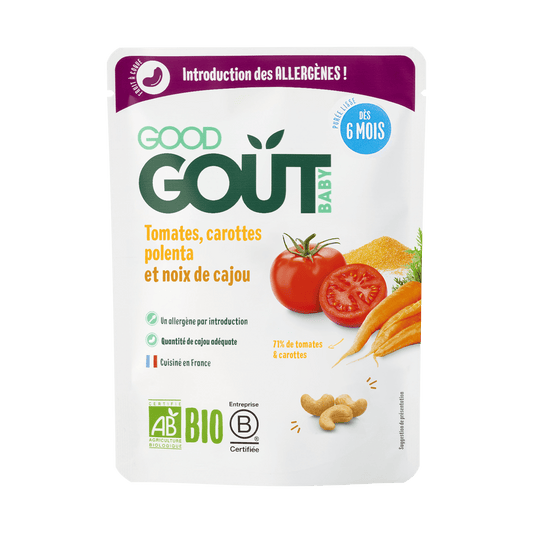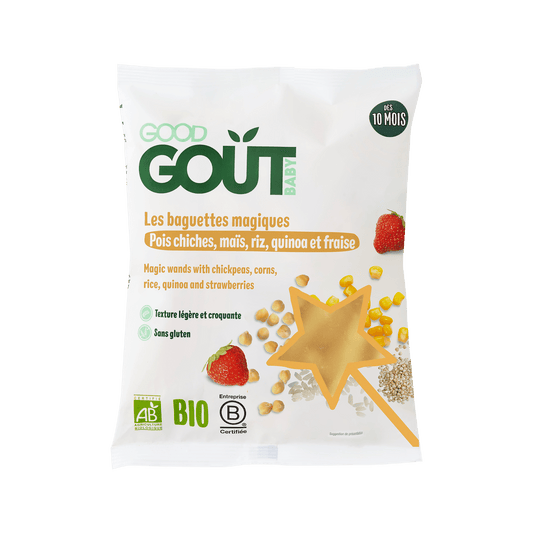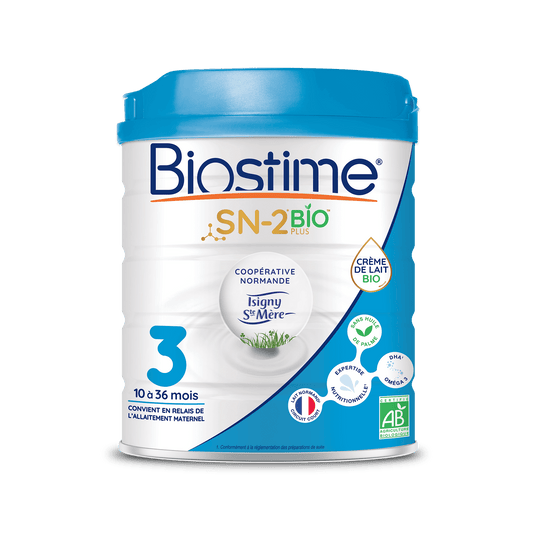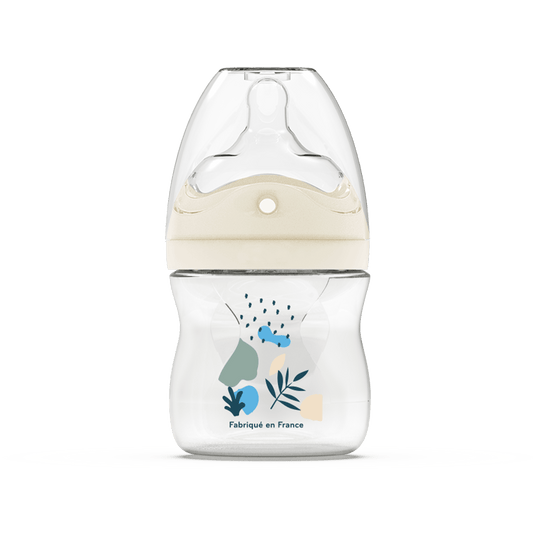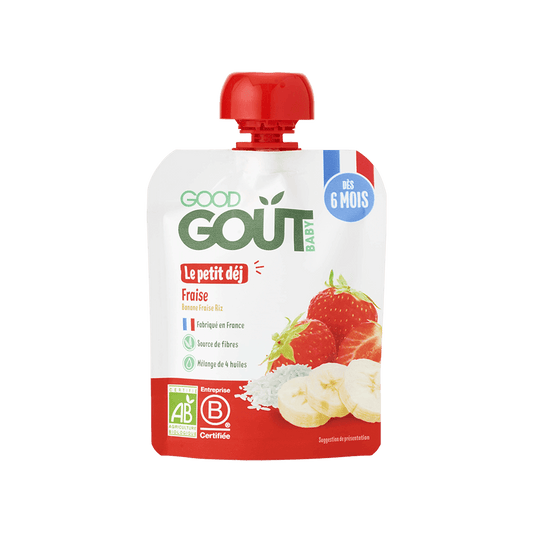Cow's milk protein allergy, or CMPA, is relatively common, affecting 3% of babies during their first year of life¹. It manifests itself through various disorders (digestive, skin, etc.)² and generally disappears before the age of 5³.
How to recognize the signs of CMPA? What are the symptoms?
At Biostime, we share our knowledge on this fascinating subject!
Important notice: Breast milk is the ideal and natural food for every infant: it is best suited to their specific needs. When using infant formula, when the mother cannot or does not wish to breastfeed, it is important to scrupulously follow the instructions for preparation and use and to follow the advice of the medical profession.
What is cow's milk protein allergy?
CMPA is a food allergy that primarily affects babies in the first few months of life, due to an immature immune system that rejects cow's milk proteins, which are considered harmful to the body.⁴ Most of the time, it disappears spontaneously around the age of 5.³
There are two types of APLV²:
- IgE-mediated CMPA: Symptoms appear just minutes after eating a food that contains cow's milk protein, as the immune system reacts by producing IgE antibodies.
- Non-IgE-mediated CMPA: it does not involve IgE antibodies, which explains why symptoms appear with a delay, up to 48 hours after consumption of CMPA.
What are the symptoms of a baby with a cow's milk protein allergy?
Cow's milk protein allergy in babies manifests itself in different ways depending on the child.
The most common symptoms are²⁵:
- Digestive symptoms: diarrhea, vomiting or reflux, abdominal pain, colic, etc.
- Skin manifestations: redness, itching of the skin, eczema, edema, etc.
- Respiratory symptoms: wheezing or difficulty breathing, conjunctivitis, chronic cough, rhinitis, asthma attack, etc.
- General symptoms: refusal of the bottle or breast, frequent crying, irritability throughout the day, sleep disturbances, etc.
If you suspect a cow's milk allergy in your baby, consult your pediatrician for advice. They may refer you to an allergist who will perform skin tests and other tests that may reveal a potential food allergy to cow's milk.
What if my baby is allergic to cow's milk protein?
The diagnosis is in: your baby has a cow's milk protein allergy. Don't panic! This food allergy is relatively common in babies, and in most cases, it disappears spontaneously as the child grows. In the meantime, it's important to make changes to your baby's diet to relieve the symptoms.
For breastfed babies
A breastfed baby can suffer from CMPA, because cow's milk proteins consumed by the mother can pass into breast milk and be passed on to the baby.⁵ This should not prevent you from continuing to breastfeed because, as the WHO reminds us, breast milk is the best thing for the baby and exclusive breastfeeding is recommended for at least the first 6 months of life and up to the age of 2. You can therefore continue breastfeeding, by implementing a strict CMPA elimination diet with the help of your doctor.
For formula-fed babies
When the mother cannot or does not wish to breastfeed and the baby is bottle-fed, the pediatrician suggests switching from standard infant formula to a specific infant formula available in pharmacies and only with a medical prescription. This is called a DADFMS (Foodstuffs for Special Medical Purposes). Several types of formula are available⁵ for CMPA:
- Formulas based on concentrated protein hydrolyzate: cow's milk proteins are cut into very small pieces to limit their allergenic power
- An infant milk made from rice protein hydrolyzate (not to be confused with vegetable juices which are not suitable for feeding an infant)
- Amino acid preparations, without any protein or protein fragments, for severe allergies
Important: Infant formula made from goat's milk is not suitable for those with cow's milk protein allergies, as 90% of babies allergic to cow's milk protein are also allergic to goat's milk protein! ⁷
Share your experience!
Is your baby allergic to cow's milk protein? How did you notice? If you're breastfeeding, is strict cow's milk protein avoidance complicated? Share your experience at contact@biostime.fr or via private message on Instagram @biostimefr, so that parents in the same situation can help each other. That's #NewBioGeneration!
Sources:
- Tamazouzt S et al. Nutrients 2022; 14(17), 3624
- Vandenplas Y et al. J Asthma Allergy 2021;14:1243-1256
- Sabouraud-Leclerc, et al. Arch Pediatr, 2022; 29:81-89
- Health Insurance. Food Allergy: Definition and Symptoms Ameli.fr [Accessed 02/10/2023]
- Media. CMPA: cow's milk protein allergy [Consulted on 05/05/2022] Available here
- Prosser CG J Food Sci 2021; 86(2): 257-265

